Wilson

Brief Synopsis
Cast & Crew
Henry King
Charles Coburn
Geraldine Fitzgerald
Thomas Mitchell
Ruth Nelson
Sir Cedric Hardwicke
Film Details
Technical Specs

Synopsis
In 1909, Woodrow Wilson, president of Princeton University and a renowned author of historical and political books, is visited by Democratic political bosses Edward Sullivan and Senator Edward H. Jones. After praising Wilson's fight to abolish the special privilege of social clubs on campus and his advocacy of democratic ideals, they ask him to run for governor of New Jersey. Wilson defers to his beloved wife Ellen and three daughters, who encourage him to champion his principles of democratic equality. At the New Jersey Democratic convention, Wilson's integrity is challenged by Joseph Tumulty, a critic of the state's political machine. To demonstrate his convictions, Wilson coerces Jones into promising not to run again. Wilson wins the election, and after taking office, is outraged to discover that Jones is planning to stand for re-election. After Jones sneers at Wilson and reminds him that he elected him, Wilson stages a campaign to successfully smash Jones's political bid. As the 1912 presidential election approaches, Wilson For President clubs, overseen by Tumulty, the governor's new secretary, spread throughout the country. As Wilson watches from the New Jersey state house, the convention convenes and his name, along with two others, is placed in nomination. Although the front runner appears to be Champ Clark, a candidate supported by Tammany Hall, Wilson stands fast and is rewarded with the nomination after the convention deadlocks in forty-five consecutive ballots. Campaigning on a platform of equal opportunity for all and against the privileges of big business, Wilson sweeps the nation and defeats the Republican incumbent, William Howard Taft, and the independent candidate, Teddy Roosevelt. Buoyed by his mandate, Wilson takes up residence at the White House and passes the Anti-Trust Act and establishes the Federal Trade Commission and the Federal Reserve Bank Act. Wilson's refusal to compromise wins him the enmity of the Senate, led by Henry Cabot Lodge. When Ellen falls ill and her health steadily deteriorates, a melancholy Wilson finds himself unable to concentrate on political affairs. Soon after Ellen's death, Germany declares war on France, and when the Germans torpedo the Lusitania , Congress clamors for war. Wilson refuses to declare war, however, arguing that only by maintaining complete neutrality can the U.S. hope to influence a lasting peace. Adrift without the support of his wife, Wilson nevertheless forces Germany to desist from submarine warfare. One year after Ellen's death, Wilson meets widow Edith Bolling Galt and soon proposes to her. Edith asks him for more time to get to know him, but when the town begins to gossip about their relationship, she finally agrees to marry him. Wilson's refusal to fight weakens his support, and in 1916, he nearly loses to Charles Evans Hughes, but is narrowly re-elected by the electoral votes of the state of California. Soon after, Wilson is notified by Count Von Bernstorff, the German ambassador, that Germany intends to reinstate submarine warfare. Incensed, Wilson denounces Germany and expels Von Bernstorff from the country. Wilson's subsequent declaration of war is greeted by cheers, and soon American troops are being shipped to France. At a railroad station, a group of soldiers bound for Europe detrains and is greeted by Wilson. While serving refreshments at a Red Cross booth, Wilson extolls the virtues of universal peace to the departing troops. Then in a speech to Congress, Wilson unveils his fourteen-point peace proposal, the centerpiece of which is the establishment of a League of Nations, an international peace-keeping force that would insure lasting peace. As U.S. casualties mount, word comes that Germany has accepted Wilson's proposal, and Germany formally surrenders on 11 Nov 1918. Against the advice of his Cabinet, which feels that the idealistic President is no match for the pragmatic politicians he must face, Wilson decides to represent the U.S. at the peace conference in Paris. As Wilson convenes the talks in Paris with Georges Clemenceau, the premiere of France, King George of England and Vittorio Emanuele Orlando, Prime Minister of Italy, a group of U.S. Senators, led by Lodge, who resents his exclusion from the conference, introduce a resolution to veto U.S. participation in the League of Nations. When Clemenceau questions the Senate's opposition, Wilson guarantees American ratification of the League and the Versailles Peace Treaty is then signed. Upon returning to Washington, Wilson mounts a political battle to save the League, and Lodge, who has a vendetta against Wilson, withholds approval of the Treaty. Despite ill health, Wilson begins to canvas the country in support of the League of Nations, delivering forty speeches over seventeen states in twenty-two days. After collapsing from exhaustion in Pueblo, Colorado, Wilson returns to Washington and suffers a debilitating stroke, forcing Edith to act as a conduit to the bedridden President. In 1920, the democrats nominate Cox of Ohio to run for President against Warren G. Harding, an opponent of the League. After Harding wins an overwhelming majority, U.S. participation in the League goes down in defeat. Wilson then bids his Cabinet farewell, confident that the ideals of a League of Nations will one day triumph.

Director
Henry King
Cast

Charles Coburn

Geraldine Fitzgerald

Thomas Mitchell
Ruth Nelson

Sir Cedric Hardwicke

Vincent Price

William Eythe

Mary Anderson
Ruth Ford
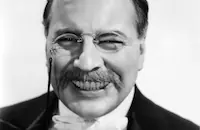
Sidney Blackmer
Madeleine Forbes

Stanley Ridges
Eddie Foy Jr.

Charles Halton
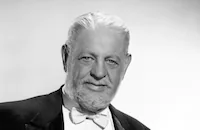
Thurston Hall

J. M. Kerrigan

James Rennie
Katherine Locke
Stanley Logan

Marcel Dalio
Edwin Maxwell
Clifford Brooke
Tonio Selwart
John Ince
Charles Miller

Alexander Knox
Anne O'neal
Arthur Loft
Russell Gaige
Jamesson Shade
Reginald Sheffield
Robert Middlemass
Matt Moore
George Anderson
Robert Barron
Paul Everton
Arthur Space
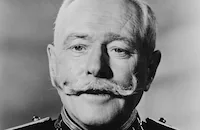
George Macready

Roy Roberts
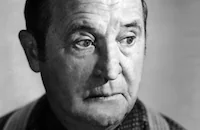
Frank Orth
Dewey Robinson

Francis X. Bushman
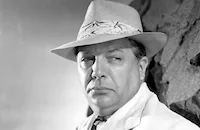
Cy Kendall
Emory Parnell
Ferris Taylor
Ken Christy
Guy D'ennery
Antonio Filauri
Hilda Plowright
Joseph J. Greene
Gus Glassmire
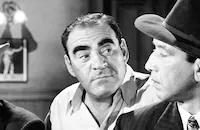
Ralph Dunn
Davison Clark
Tony Hughes
Isabel Randolph
Jess Lee Brooks
Gladden James
Frank Dawson
Larry Mcgrath
Josh Hardin
Ralph Linn
Russ Clark
Harold Schlickenmayer
Ed Mundy
Aubrey Mather
Jesse Graves
Del Henderson
John Ardell
George Mathews
Harry Tyler
Harry Carter
Jessie Grayson
Frederick Burton
George Lessey

Roy Gordon
Jack Young
William Carleton

Clyde Fillmore
Herbert Heyes
Emmett King
Harry Adams
Gibson Gowland
Scott Seaton
George Carleton
Louis Arco
William Yetter
Otto Reichow
Arno Frey
Jeffrey Sayre
Phyllis M. Brooks
Reed Hadley
Freddie Walburn
Marvin Davis
Danny Jackson
Larry Harris
Paul Hilton
Truman Van Dyke
Norman Salling
Larry Mcgrath
Joseph Haworth
Edward Ryan
Rex Williams
Robert Regent
Montague Shaw
Major Sam Harris
Ben Erway
Earle Dewey
Grandon Rhodes
Lester Dorr
James Bush
George Lynn
Franklin Parker
Sherry Hall
Edward Earle
Carroll Nye

Griff Barnett

Ian Wolfe
John Forrest
Paul Mcvey
John Davidson

John Hamilton
John Maxwell Hayes
Jack Lawrence
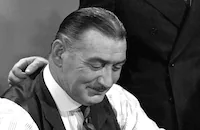
Edward Keane
Forrest Taylor

Will Wright
Sam Flint
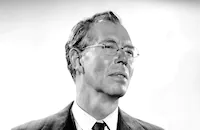
Walter Baldwin
David Cavendish
Ray Cooper
Eula Morgan
Marguerita Padula
Jack Stoney
Ralph Sanford
John Whitney
William Forrest
Richard Abbott
Roger Imhof
Romaine Callender
Charles Cane
Bob Thornby

Emmett Vogan
Hamilton Macfadden

Larry Williams
James Metcalf
Jack Baxley
Mary Currier
Francis Ford
Crew
Dave Anderson
Ray Stannard Baker
James Basevi
Joseph Behm
Otto Brower
Paul S. Fox
Roger Heman
R. L. Hough
Renè Hubert
Wiard Ihnen
Truman Joiner
Natalie Kalmus
Thomas Little
Miles Mccahill
Barbara Mclean
Richard Mueller
Alfred Newman
Ernest Palmer
Guy Pearce
Edward Powell
Frances Richardson
Hector Serbaroli
Fred Sersen
Leon Shamroy
Lamar Trotti
E. Clayton Ward
Helen Webb
Darryl F. Zanuck

Photo Collections
Videos
Movie Clip



Hosted Intro
Film Details
Technical Specs

Award Wins
Best Art Direction
Best Cinematography
Best Editing
Best Sound
Best Writing, Screenplay
Award Nominations
Best Actor
Best Director
Best Picture
Best Score
Best Special Effects
Articles
Wilson (1945) - Wilson
Back in Hollywood's heyday, biographies of historical figures tended towards hagiography over "warts and all" exposé and Wilson is no exception. Nowhere in the movie will the viewer find references to Wilson's implementation of segregation in the federal government where none existed or Wilson's attempt to get a provision for censoring the press included in the Espionage Act of 1917. After it was eliminated from the Act, Wilson complained, "Authority to exercise censorship over the press ... is absolutely necessary to the public safety." This is left out as is practically anything else that may paint Wilson in a lesser light. What's left in is a strong performance by Alexander Knox as the president and a sense of what America was fighting for in World War II. Viewed within that context, the film makes a lot more sense.
The movie isn't about Wilson so much as America, what it stands for and what it was fighting against. There isn't a better scene in the movie to illustrate this than one, late in the game, when Wilson is speaking with the German ambassador about U-boat warfare. The United States has a deal with Germany that U-boats will not indiscriminately torpedo American vessels and the ambassador is here to tell him that the deal no longer stands. Wilson goes into a tirade, displaying a passion the likes of which hasn't been seen from him throughout the movie. He yells at the ambassador about Germany, what they seem to stand for and what America will do in response. The problem is, none of what he says really applies to 1917 Germany. His references to the "greatest evil" ever perpetrated upon mankind, the necessity of the civilized world to extinguish such evil now and forever, is clearly aimed at Nazi Germany, not Kaiser Wilhelm's German-Prussian Empire. It's a fair bet that few people watching the film in 1944 were thinking very sympathetically towards Germany and didn't bother over such distinctions so why should the filmmakers?
As for the story of Wilson's life, it's told starting at Princeton, where Wilson was President just before politics pulled him out of academia and put him into the swamp. Wilson is visited by a group of New Jersey politicians eager to use Wilson's upstanding reputation and intellectual rigor to move the Democratic Party ahead. Charles Coburn as an early supporter is superb in his role. Wilson accepts and is elected governor in 1910 followed quickly by nomination with the Democratic Party for President of the United States.
The film quickly gets to Wilson's presidency not simply because there is so much to cover but because, in the end, it's the presidency that holds all the interest. And there truly is much to cover, both in politics and his personal life. Wilson's first wife, Ellen, died in the White House after a long illness, his daughter was married there and, finally, after meeting Edith Galt in 1914, he married her while in his first term. But while this is of great interest it is the war that consumes all.
For Wilson's first term, keeping America out of the war was the priority and the film makes it clear that it was this very thing that got Wilson re-elected. In a clever montage for the campaign of 1916, the director Henry King shows the other side complaining about the economy, then cuts to Wilson's campaign man before a crowd saying, "He kept us out of the war!" Back to the other side complaining about another problem and back to Wilson's side saying, "He kept us out of the war!" Two or three more times and the point is taken: The other side can complain all it wants about as many different things as it wants and all Wilson's side has to do is remind everyone that he kept them out of the war.
Until, of course, it makes sense to enter the war. Once the Germans double cross the President on their deal concerning U-boat warfare, the President realizes war is the only answer. It's a clever pivot the movie makes. It has the luxury of historical evidence to take the side of so many isolationists before World War II, show their side as a morally valid one and then, when the tables are turned, show the side of those who believed intervention was not only necessary but imperative and show their argument has the same moral strength. It's a convenience of history that allows Wilson to win over both sides of the argument and thus come off as patriotic and morale-boosting without seeming forced.
Henry King directs Wilson with a reverence for his subject matter and an eye towards the present day. The film is filled with great actors in small roles, from Charles Coburn and Thomas Mitchell to Cedric Hardwicke and Geraldine Fitzgerald. Even the great Vincent Price has a role in Wilson although one wishes he were used to greater effect. As for the lead, it was one of the only times in Alexander Knox's career that he got to play the lead and that he did so in a sprawling historical drama without losing the interest of the viewer is a testament to his skills as an actor and the film's general appeal, especially for the 1944 viewer, seeking inspiration and strength in the midst of one of the most dire periods in world history.
Producer: Darryl F. Zanuck
Director: Henry King
Screenplay: Lamar Trotti
Cinematography: Leon Shamroy
Music: Alfred Newman
Film Editor: Barbara McLean
Art Direction: James Basevi, Wiard Ihnen
Cast: Alexander Knox (Woodrow Wilson), Charles Coburn (Professor Henry Holmes), Geraldine Fitzgerald (Edith Bolling Galt), Thomas Mitchell (Joseph Tumulty), Ruth Nelson (Ellen Wilson), Cedric Hardwicke (Senator Henry Cabot Lodge), Vincent Price (William Gibbs McAdoo).
BW&C-154m.
by Greg Ferrara

Wilson (1945) - Wilson
Geraldine Fitzgerald (1913-2005)
Born in Dublin on November 24, 1913, Fitzgerald was educated for a time in a convent school in London. Back in her native Dublin, she happily accompanied her aunt, the Irish actress Shelah Richards, to a theater one afternoon when the director mistook her for an actress, and instructed her "to go backstage and change." An inauspicious start, but it gave her the acting bug. She made her stage debut in 1932 in Dublin's Gate Theater and later appeared in a few forgettable British films: Open All Night (1934), The Ace of Spades, Three Witnesses (both 1935). She made the trip across the Atlantic in 1938 to act with Orson Welles and his Mercury Theater, but agents from Warner Bros. quickly signed her and she was soon off to Hollywood.
She made her film debut in 1939 supporting Bette Davis in Dark Victory, but it was her performance in a second film later in the year that proved to be the most memorable of her career - the role of Isabella Linton in Wuthering Heights. She earned an Oscar® nomination for her turn and stardom should have been around the corner, but Fitzgerald's feuding with studio head Jack Warner (he refused to let her return to the New York stage and she would refuse parts that she thought were inferior) led to some lengthy suspensions of unemployment. Irregardless, Fitzgerald still had some shining moments at Warner Bros. the heady melodrama The Gay Sisters (1942); the superb espionage thriller Watch on the Rhine (1943); Robert Siodmak's terrific, noirish thriller The Strange Affair of Uncle Harry (1945); and a tough crime drama where she played opposite John Garfield Nobody Lives Forever (1946).
Fitzgerald returned to New York by the '50s, and found much work in many of the live television dramas that were so popular in the day: Goodyear Television Playhouse, Lux Video Theatre, Studio One, Schlitz Playhouse of Stars; and even some taped television shows: Naked City, Alfred Hitchcock Presents in between her stage demands.
She did return to the screen by the mid-'60s and proved herself a fine character actress in films like The Pawnbroker (1965); Rachel, Rachel (1968); Harry and Tonto (1974); a wonderfully memorable comic turn as Dudley Moore's feisty grandmother in Arthur (1981); and yet another noteworthy performance as Rose Kennedy in the acclaimed mini-series Kennedy (1983). She also appeared in a few television programs: St. Elswhere, Cagney & Lacey, and The Golden Girls before ill-health forced her to retire by the early '90s. Among the relatives that survive her are her son, director Michael Lindsay-Hogg (Brideshead Revisited; a daughter, Susan Scheftel; and her great-niece, the English actress Tara Fitzgerald.
by Michael "Mitch" Toole
Geraldine Fitzgerald (1913-2005)
Quotes
Trivia
Notes
In written onscreen credits, the actors and the characters they portray are introduced in the following manner: "Charles Coburn as Professor Henry Holmes," "Geraldine Fitzgerald as Edith Wilson," etc. Alexander Knox, although the star of the film, is introduced last. The film opens with the following written prologue: "Sometimes the life of a man mirrors the life of a nation. The destiny of our country was crystallized in the life and times of Washington and Lincoln. And perhaps, too, in the life of another president. This is a story of America and the story of a man. Woodrow Wilson, 28th President of the United States." Woodrow Wilson was born on December 28, 1856 and died on February 3, 1924. He was inaugurated as President of the United States on March 4, 1913 and served until his defeat by Warren G. Harding in 1920. Under Wilson, a new era of government regulation was instituted, especially in the areas of banking, anti-trust and fair trade. Wilson presided over the Presidency during World War I, initially keeping the U.S. out of war and later, brokering peace with the Germans and proposing the establishment of the League of Nations as a part of the Versailles Peace Treaty. Although his proposal of the League was rejected by the U.S. Senate, Wilson was awarded the Nobel Peace Prize in late 1920. Unlike the film, in which "Ellen Wilson" dies before Germany declares war on France, war was actually declared several days prior to Ellen's death. The character of "Professor Henry Holmes" was a fictional composite of several men who advised Wilson during his political career.
Materials contained in the Twentieth Century-Fox Produced Scripts Collection, located at the UCLA Arts-Special Collections Library, disclose that Wilson was first conceived in April 1942 as a story about a family living during the early twentieth century. The treatments for that story, all written by Norman Reilly Raine, were variously titled Yankee Cavalcade, Goodbye Nellie Gray and Goodbye Dollie Gray. By January 1943, these treatments were superseded by a screen story titled Woodrow Wilson by Lamar Trotti. According to a March 1943 Hollywood Reporter news item, Trotti's script was based on Wilson's "private papers, a personal diary and unpublished letters."
Hollywood Reporter news items yield the following information about the production of Wilson: In early August 1943, producer Darryl F. Zanuck talked to Walter Huston about playing the title role. By mid-September 1943, Ronald Colman was being considered for the role of "Wilson" and Claudette Colbert for the part of "Mrs. Wilson." Although a October 26, 1943 item adds that Frank Conroy tested for a role, his appearance in the released film has not been confirmed. A December 22, 1943 news item states that cinematographer Ernest Palmer was forced to withdraw from the picture because of illness, and was replaced by Leon Shamroy, who at the time was filming Greenwich Village. According to a January 31, 1944 item, James Basevi resigned as art director over a disagreement about the production.
According to a April 25, 1944 item, the picture cost over $4,000,000 to produce, making it the studio's costliest production to date. Eighty-four key sets were built, occupying seven sound stages, according to a November 16, 1943 item. Studio publicity contained in the Production files on the film in the AMPAS Library states that the picture cost $5,200,000 and included a total of 162 sets. An October 1943 item adds that all the sets were based on detailed accounts from authoritative reference works. The studio went to great lengths to duplicate the White House rooms as they looked in Wilson's day, according to a May 5, 1944 item. Studio publicity adds that architects authentically duplicated the East room, the Blue room and the Oval office in the White House. Also duplicated were the Lincoln bed, Wilson's desk and numerous other pieces of historical furniture. Artist Hector Serbaroli was hired to make copies of paintings that hung in the White House. To achieve the proper colors, cinematographer Shamroy had to add shades of gold, blue, orange, yellow and purple to white light. An February 18, 1944 item notes that the Democratic convention scenes were shot at the Shrine Auditorium in Los Angeles and the Princeton backgrounds were shot in Trenton, NJ, according to a October 28, 1943 item. Other backgrounds were shot in Pueblo, CO, according to a November 30, 1944 item, at the Midwick Country Club in Alhambra, CA, according to a December 7, 1943 Hollywood Reporter news item, and at the Biltmore Theater in Los Angeles, according to a December 23, 1943 item.
A September 5, 1943 item notes that Twentieth Century-Fox film editor Walter Thompson went to Washington to secure 12,000 feet of newsreels shot during the Wilson and World War I era. Some of that footage was eventually incorporated into the World War I segment of the film. The music scoring for the film cost over $425,000, according to a June 29, 1944 item. The score included over 90 different tunes from the era of the picture. Among the songs used were "Oh, Susannah," "On Moonlight Bay," "By the Light of the Silvery Moon," "Put on Your Old Gray Bonnet," I Didn't Raise My Boy to Be a Soldier," "I'm Giving My Boy to Uncle Sam" and "Old Nassau," the Princeton alma mater.
In 1943, before the film began production, a cast of 75 radio actors and the Gordon Jenkins orchestra, all under the direction of veteran radio director William Bacher, recorded the entire script of Wilson, marking the first time in motion picture history that a complete script was done on records before shooting, according to a September 27, 1943 Hollywood Reporter news item. The film's New York premiere was attended by Mrs. Edith Wilson. Throughout the first year of its release, the picture was distributed on a reserved seat basis that required the purchase of an advanced admission. It did not go into regular price release until August 1945, according to a March 16, 1945 item. In August 1944, the War Department Board of Morale Services forbade showing the film in Army camps on the grounds that it violated the provisions of the Soldier Voting Act. That act prohibits the distribution to the armed forces of any material that May influence the results of a national election. The studio protested the board's ruling and it was overturned by late Aug, according to a August 21, 1944 news item.
To pre-empt plagiarism suits, the studio bought the screen rights to the 1944 book Woodrow Wilson by Gerald W. Johnson. The book was not incorporated into Trotti's screenplay, however. In 1945, Anthony Richard Pinci sued the studio for pirating his 1929 play Woodrow Wilson, according to a January 4, 1945 news item. The outcome of that suit is unknown. The film was nominated for the following Academy Awards: Best Picture, Best Actor (Alexander Knox), Best Director, Best Special Effects and Best Musical Score. It won the Academy Award for Best Original Screenplay, Best Color Cinematography, Best Art Direction, Best Film Editing and Best Sound Recording. The film garnered enthusiastic reviews. The Variety review gushed "[Wilson] can be its own Yankee good-will-getter abroad, perhaps of a value transcending statesmanship or lend-lease. For domestic consumption, it's a must."
Although a September 1943 Daily Variety news item noted that the film's screenplay was to be broadcast as a radio play before filming began, this has not been confirmed. Other productions based on the life of Wilson include a March 20, 1944 Hall of Fame Broadcast over the Blue Network that featured a condensed version of the film script; a May 13, 1961 NBC Our American Heritage teledrama titled Woodrow Wilson and the Unknown Soldier with Judson Laire and Humphrey Davis, directed by James Lee; and a October 3, 1962 NBC documentary titled The Ordeal of Woodrow Wilson, directed by Robert K. Sharpe.
















